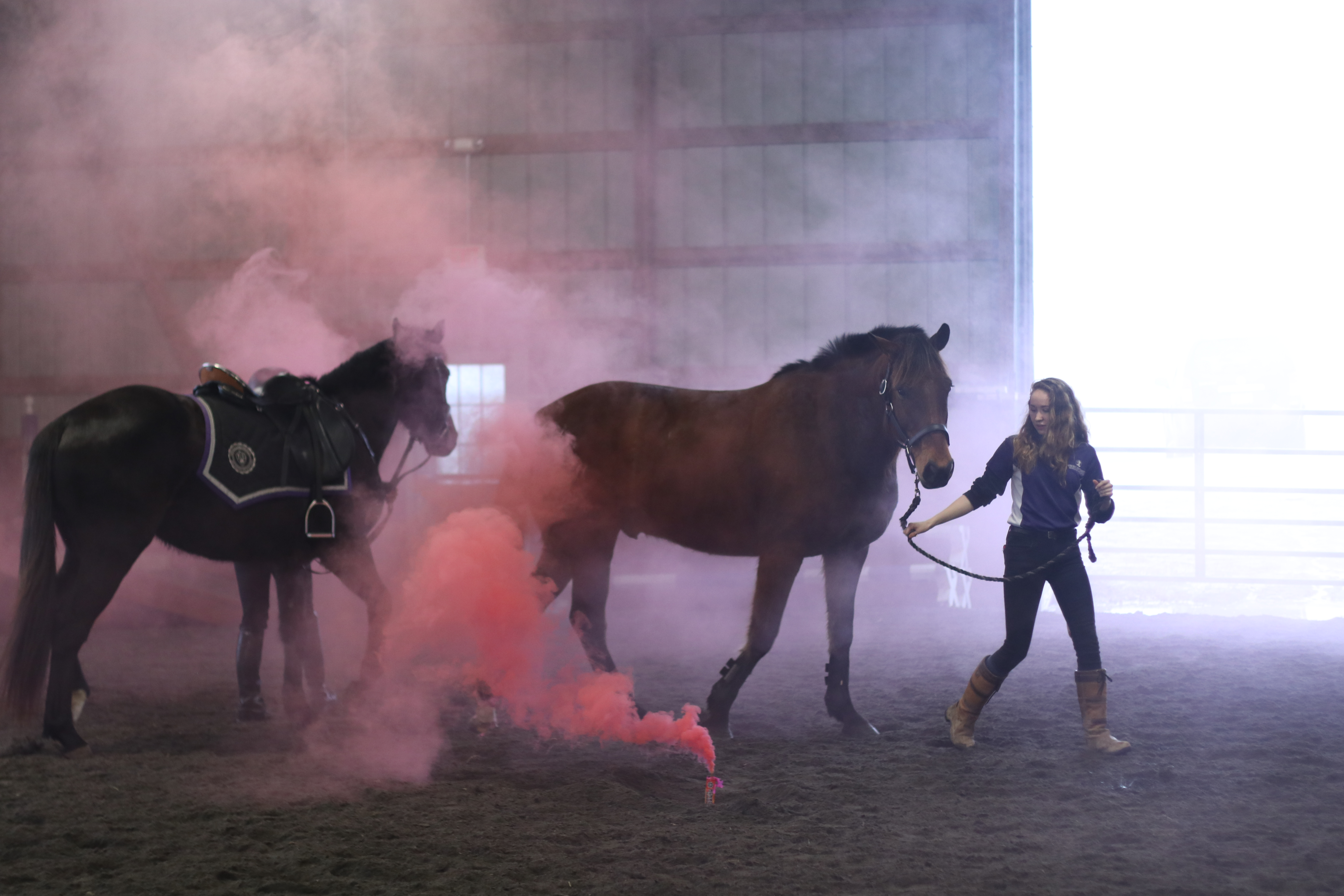As the equine department continues to grow, more police departments are requesting to buy horses from Asbury’s Service Mounts program. For the National Mounted Police Colloquium, held Sept. 23 to 27, Asbury sold its record number of nine horses to police departments all over North America.
The Service Mounts program at Asbury is the only student-led police horse training program in the country. Wilmore Mayor and Director of Equine Studies Harold Rainwater runs the program, and students take horses through roughly three years of training before selling them.
Asbury normally sells around three horses per year, but this year the demand was high. “Right now I think we could sell 10 more if we had them,” said Rainwater.
Held at the Kentucky Horse Park, the annual colloquium attracts 100 police officers from roughly 30 departments across North America, from Vancouver, Canada, to Albuquerque, New Mexico. The event serves as continuing education for officers and their horses, and allows Asbury and other farms to showcase their horses.
Clinics at the event focus on desensitization training for loud sounds such as guns and sirens, abnormal sights, arena work and jumping. Asbury students set up a booth at the event to hand out brochures and tell people about the equine program.
Asbury’s equine department also held an open house Sept. 26 for police departments to look at the horses for sale. However, when told about the open house, some departments decided to come before the colloquium started to get first pick on the horses.
Asbury had placed or sold all nine horses before the colloquium even started. The horses will go to their respective departments (which include Atlanta, Detroit and Vancouver) after they’ve completed training in early May 2020.
The horses sell for $10,000 each, and the money goes to cover costs for Asbury’s equine department.
Rainwater began the Service Mounts program in 2001 when the equine department was just starting out. “We were looking for something that students could do that you could sort of measure the success of training and working a horse,” he said.
Rainwater said the program picked up significantly in the past five years and now employs internationally-known trainer Jesse Westfall. Westfall lives in Ohio and teaches training courses at Asbury on Wednesdays and Thursdays.
Roughly 40 out of the 100 students in the equine major are part of the Service Mounts program. New students are required to take the Intro to Horse Training class before being assigned a foal, which come mainly from Canadian breeding farms and rescue programs. Many of the horses were taken from their mothers prematurely and neglected.
Student leader of the program, senior and equine major Clara Quade has trained a horse named Killian for two years. He was sold to the Vancouver department just before the colloquium.
“[Killian] came in as this little 6 month-old, did not trust people, did not trust me [and] had a bit of an attitude,” Quade said.
The foals normally arrive late in the fall semester and are anywhere from 6 months to three years old. After spending Christmas break adjusting to Asbury’s environment, the horses start ground work.
The first year of training includes mainly desensitization work. “We get them used to weird and crazy sights and smells and sounds, so that when they go out on the streets they’ll be able to handle whatever comes their way,” said Quade. Students have horses play with pool noodles, hula hoops and tarps and show them smoke bombs, firecrackers and sparklers.
The second year focuses on preparing horses for riding and working better with people. Students finally get to mount their horses the third year and begin riding training. “All this stuff that we’ve taken and built up incrementally is to make sure that there’s no explosion when we get on them, and that they’re not surprised,” said Quade.
Quade began riding Killian earlier this semester and said it did not phase him. “It was just another day of work for him, and he trusted me completely to teach him what he needed to know,” she said. “As you build, you can introduce something new to these horses and they’re like, ‘Okay, I don’t know this yet but I trust you’re gonna show me the answer and help me figure it out.’”
In the spring, students will ride the horses for long hours before police officers will have to.
In hopes of meeting the demand in future years, Rainwater is planning to grow the program and has already bought 12 more horses. Though he is unsure of where the market will go for police horses, Rainwater said, “We want to be ready.”


